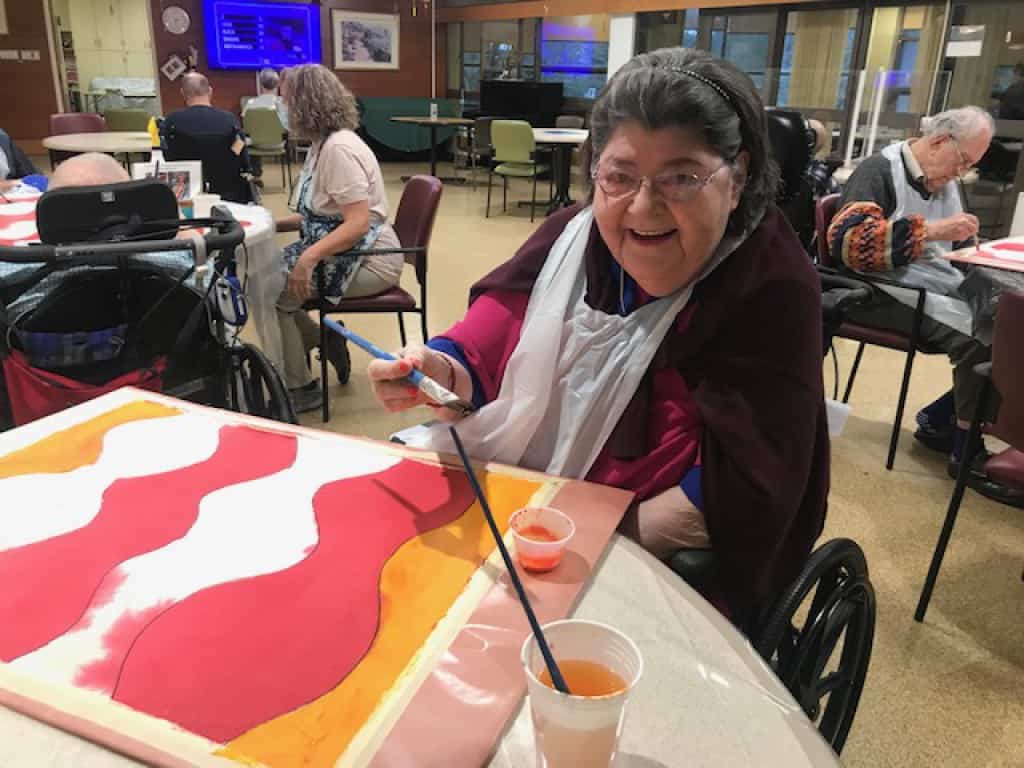This article is part of our continuing “Research & Innovation” series looking at some of our most exciting studies, breakthroughs, and discoveries.
Right now, seniors make up almost 20% of our population and that number is rising quickly. By the end of this decade, another five million of us will have turned 65.
On one hand, it’s great that we’re living longer. On the other, those years often come with complex medical needs, chronic illness, frailty, and cognitive challenges. Case in point: 80% of residents in long-term care have some form of dementia.
Providence has long been a champion of initiatives to redefine and improve seniors’ care. And we are uniquely qualified to do this work. Fully 25% of our patients are seniors; we have 7 long-term care and assisted-living homes serving more than 900 seniors; and we have a 130-year history of providing compassionate care for the most vulnerable members of our community.
Since the pandemic hit, we’ve seen just how vulnerable seniors are. And it has spurred us to try to move the dial even more quickly.
Bobo will see you now
iPads have become an indispensable tool to help people living in long-term care engage with family, friends, clergy, and caregivers. Now, a robot named Bobo is taking those interactions one giant step (or should that be one smooth roll?) further.
The project is led by CHÉOS research associate Dr. Lillian Hung, founder and head of IDEA Lab at UBC. Working with geriatric specialists, nurses, care aides, and patient- and family-partners – IDEA Lab is pioneering a fleet of 10 robots to reduce social isolation in long-term care.
Bobo is a little like a Roomba fitted with a selfie stick and a high-definition camera. It can self-drive to roam around (without crashing!) or it can be controlled by the person on the other end of the screen. For example, a loved one joining a resident for a virtual lunch date can pilot Bobo right up to the table, then adjust the screen for a comfortable, two-way conversation. Bobo could also auto-circulate through a room to engage and encourage residents during a group activity.
But perhaps the biggest advantage is that Bobo eliminates the stress of engaging with the technology. Residents don’t have to know how to use a tablet and they don’t have to physically hold the iPad (a significant challenge for many). Meanwhile, staff members (who may also be uncomfortable troubleshooting tech problems) aren’t taken away from other tasks to facilitate calls or wrangle connectivity issues.
The team is only a few months into a three-year pilot, but the early results are promising and give us a glimpse of how we can harness technology to bring joy and connection.
Home sweet Home for Us
You’ve probably heard that we are poised to build BC’s first two publicly-funded “dementia villages,” one in Comox and one in Vancouver. In the meantime, we’re actively transforming care – and the spaces themselves – for residents living in our current long-term care homes.
The goal of the Home for Us initiative is to recreate the same comfortable feelings and genuine interactions you’d have in your own home. In other words, a place where you eat when you’re hungry, sleep when you’re tired, and experience as much (or as little) independence as you want.
Home for Us is based on research conducted by our own Dr. Amy Salmon and her team (among many others). The process starts by asking residents and families what matters most. How can we create joy in your day? How do we truly support your dignity and autonomy? How can we demonstrate how much we truly value everything you bring to our community?
Part of what makes this so unique is that the research is happening in real time and in tandem with clinical-care colleagues. It’s an unusual collaboration that’s having a rapid, life-changing impact on our homes and the people who live and work in them.
Putting the “special” in specialized care
In the same way that kids benefit from specialized pediatric care, seniors benefit when their caregivers are specially trained to meet their needs. Providence has long been a champion of this holistic, patient-centred approach.
Mount Saint Joseph Hospital (MSJ) is home to BC’s very first geriatric cardiologist. Dr. Rudy Chow is renowned for providing compassionate, supportive care that truly goes above and beyond. Patients from across the lower mainland make the trek to MSJ just to see him.
Dr. Janet Kow is another of our geriatric specialists. One of the things that sets her apart is her advocacy for good, old fashioned house calls! Dr. Kow says that a home visit is much more than a medical appointment. It’s an opportunity to see if the patient is able to get around; if there’s food in the kitchen; if their home is clean and safe.
With this kind of care and attention to detail, our patients can age comfortably and safely in their own homes for as long as possible. If the time comes to move into long-term care, the transition will be smoother and the experience will be positive and affirming.
Special thanks!
Dr. Lillian Hung, IDEA Lab (Innovation in DEmentia care and Aging), UBC
Dr. Amy Salmon, associate director, Academic, Community, and Systems, CHÉOS
Dr. Rudy Chow, geriatric cardiologist, MSJ; Director, Geriatric-Cardiology Program, UBC
Dr. Janet Kow, physician program director, Elder Care, Providence Health Care
We are inspired and hopeful about the future of seniors’ care. With your generous support, we’re making sure life’s journey continues with meaning and grace for our patients, residents, their families, our caregivers, and the entire community. Give today.
